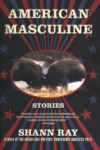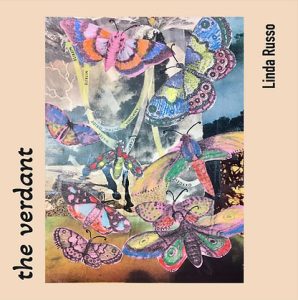American Masculine: Stories
Winner of the Bread Loaf Writers’ Conference Bakeless Prize, Shann Ray’s volume of short fiction features ten stories of the American West. Focused, as the title implies, on the question of what it means to be a man, the stories delve into relationships, substance abuse, and parenting. Hovering right underneath—and often entwined with—the question of masculinity is the question of racial identity: most of Ray’s stories feature Native Americans struggling with their identity (whether in the white world or within their own culture), or white Americans making their way in the Native world.
Winner of the Bread Loaf Writers’ Conference Bakeless Prize, Shann Ray’s volume of short fiction features ten stories of the American West. Focused, as the title implies, on the question of what it means to be a man, the stories delve into relationships, substance abuse, and parenting. Hovering right underneath—and often entwined with—the question of masculinity is the question of racial identity: most of Ray’s stories feature Native Americans struggling with their identity (whether in the white world or within their own culture), or white Americans making their way in the Native world.
Ray’s stories are physical and immediate. Though they are also replete with imagery, he doesn’t hesitate to address his topics head-on. Again and again, he seeks to define the elusive quality of masculinity: “A man will be physical, he thinks, forsake things he should never have forsaken, his kin, himself, the ground that gave him life.” Or “men were made mostly of emptiness, he thought, palpable, burdensome.” The men in these stories seek to uncover definitions or defy them, to return to a quality they have lost, or escape a quality that confines them. Young men falling in love for the first time, fathers going through mid-life crises, brothers coming to terms with loss, all of these characters confront their dilemmas and demand to know how a man should act.
Landscape also dominates these stories. From the dusty rodeo rings, to the fast-driven highways, to the aching snowstorms, the West is vividly present. In “In the Half Light,” a father and son reunite through fishing, and the younger man comes alive through his appreciation of the environment: “the river gathered and twined here, where it hugged cutbanks and land bends, parted by islets and sandbars. The water narrowed in the canyons, then broadened again among the mountains, flanked always by aspen and cottonwood, wildflowers, willow, and wild rose.” For this son, who has been lost in the city, the land reawakens his senses and revives his belief in his own possibility. But it isn’t just the natural world that Ray captures so eloquently. His description of manmade landscape also conveys wonderful meaning, from his urban settings of tortured metal and artificial light to the “kitchen at the halfway point of the house, where the brown carpet of the living room met the worn linoleum of the dining space, the line that unites the two halves of every mobile home.” These are spaces that Ray invites us into and makes us know well.
By the fourth story in the volume, however, a strange monotony settles in. All of Ray’s protagonists are men, all of them tall (the majority of the stories list explicit height, and that height is usually six-three to six-five), several of them former rodeo riders, many of them currently in the banking industry or having received a degree in philosophy. The characters’ personal histories also blend together, whether it is “seven days after Devin graduated with honors from Montana State University, his father stood over him and broke his nose” or the character who recalls “in a rage the old man had thrown a cue ball at him, striking him on the skull behind the ear, knocking him out.” The unrelenting sameness of theme certainly unifies the collection, but it deadens it as well: each story sounds the same note.
Still, that note is a fascinating one. Ray turns corners that aren’t often explored in short fiction. Unafraid of honesty when confronting themes of substance abuse, physical abuse, power dynamics, and race relations, Ray’s stories are refreshing and thought-provoking. Eloquent and honest, this is a volume well worth reading.





